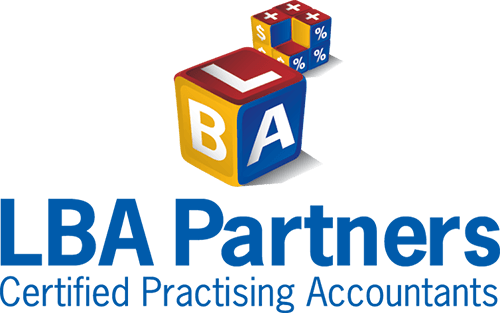P r a c t i c e U p d a t e
October 2011
Spring carnival, year-end and other staff parties
As the Spring racing carnival is upon us, and with the December/January break on the way, many employers and businesses will be planning to reward staff with a celebratory party or event.
However, an important issue for our clients to consider is the possible FBT and income tax implications of providing 'entertainment' (including Christmas parties) to staff and clients.
Under the Tax Act, employers must choose how they calculate their FBT entertainment liability and most use either the actual method or the 50/50 method.
Under the actual method, entertainment is normally split up between employees (and their family) and non-employees (e.g., clients/suppliers).
Expenditure on employees is liable to FBT and deductible. Expenditure on non-employees is not liable to FBT, and is not tax deductible.
Using the 50/50 method instead?
Rather than apportion entertainment expenditure between staff, associates and business clients, etc., many employers choose to use the more simple 50/50 method.
Under this method, (irrespective of where the party is held or who attends) – 50% of the total expenditure is subject to FBT and 50% is tax deductible.
However, the following traps must be considered:
- even if the function is held on the employer's premises – food and drink provided to employees is not exempt from FBT;
- the minor benefit exemption* cannot apply; and
- the taxi travel exemption cannot apply.
(*) Minor benefit exemption
The minor benefit exemption provides an exemption from FBT for benefits of 'less than $300' which are provided to employees (and their family/associates) and which are infrequent and irregular.
The Tax Office accepts that different benefits provided at (or about) the same time are not added together when applying this threshold.
Basically, this means that a Christmas party and gift may be exempt from FBT, even if provided at the same time, as long as the cost of each benefit is less than $300.
Editor: And that's 'less than' $300, i.e., no more than $299.99. A $300 gift to an employee will be caught for FBT, whereas a $299 gift is exempt.
Example: A Melbourne Cup party
An employer holds a Melbourne Cup party for its employees and their spouses.
The cost of food and drink per person is $250, and no other benefits are provided.
If the actual method is used:
- For employees attending on their own or with their spouse – no FBT is payable (i.e., the per head cost is less than $300) and no tax deduction will be allowed.
If the 50/50 method is used:
- 50% of the total expenditure is subject to FBT and is tax deductible.
Editor: The above is only a short explanation and while we have tried to simplify the rules, we understand that it can get complicated, so give us a call if you would like a hand.
Cash economy and the ATO's benchmarks
Recently, the Tax Office discussed its small business benchmarks* that were introduced in October 2009.
Editor(*): The benchmarks cover a range of industries that are likely to receive cash such as most building trades, and many small retailers such as pizza shops, takeaways or hairdressers. If you would like to know if your business has been benchmarked, please call our office.
The ATO advised that 121 benchmarks have been published covering 101 industries. The benchmarks are intended to cover the higher risk elements of the cash economy.
As part of the ATO's audit strategy, businesses that are outside the benchmarks for more than a year can expect to be reviewed/audited.
The following "stats" are of interest:
- last year 118,000 taxpayers were reviewed;
- omitted income is found in about 25% of all cases audited; and
- this year, record-keeping will be targeted.
Editor: Clients who are in industries that have been benchmarked need to understand that accurate and detailed record-keeping has become the name of the game. If a taxpayer doesn't have the records to prove they are innocent, the Tax Office will in all likelihood find them guilty.
ATO and GST compliance
The Tax Office says that GST cheats are more likely than ever before to be caught out this year, as it plans to increase its audits on GST refund claims by small businesses and investigate cases of serious evasion.
It will complete an extra 11,500 cases in 2011/12 investigating the systematic or deliberate under-reporting of GST and fraudulent GST refund claims.
Last financial year 28 people were prosecuted for more than $17 million worth of GST-related fraud offences.
SMSFs and money lending
Editor: The Tax Office has issued an information sheet on their website warning trustees about the perils of lending an SMSF's funds to the wrong person.
This includes the practice adopted by some taxpayers of withdrawing funds from an SMSF to temporarily help prop up their business when cash flow is tight.
This practice has apparently become quite prevalent since the global financial crisis.
FBT treatment of signage on a car
Editor: At a recent meeting, the Tax Office confirmed that the cost of 'signage' placed on a car would not form part of the base value of the car.
The ATO agreed that the signage in the form of a removable thin film fitted to the car is not a 'non-business accessory'; and is not included in the cost price of the car.
That is, the cost of such signage would not form part of the base value of the car for FBT purposes.
GIC & SIC rates for December 2011 quarter
The ATO has released the GIC (General Interest Charge) and SIC (Shortfall Interest Charge) rates for the December 2011 quarter. They are:
GIC rate 11.86%
GIC daily compounding rate 0.03249315%
SIC rate 7.86%
SIC daily compounding rate 0.02153425%
Please Note: Many of the comments in this publication are general in nature and anyone intending to apply the information to practical circumstances should seek professional advice to independently verify their interpretation and the information's applicability to their particular circumstances.
Management Consulting
We have the know-how and experience to offer advice that helps you run your business more effectively.
Self-Managed Superannuation Funds
At LBA Partners we provide the professional advice you need to manage your own fund and greatly simplify the process for you.



